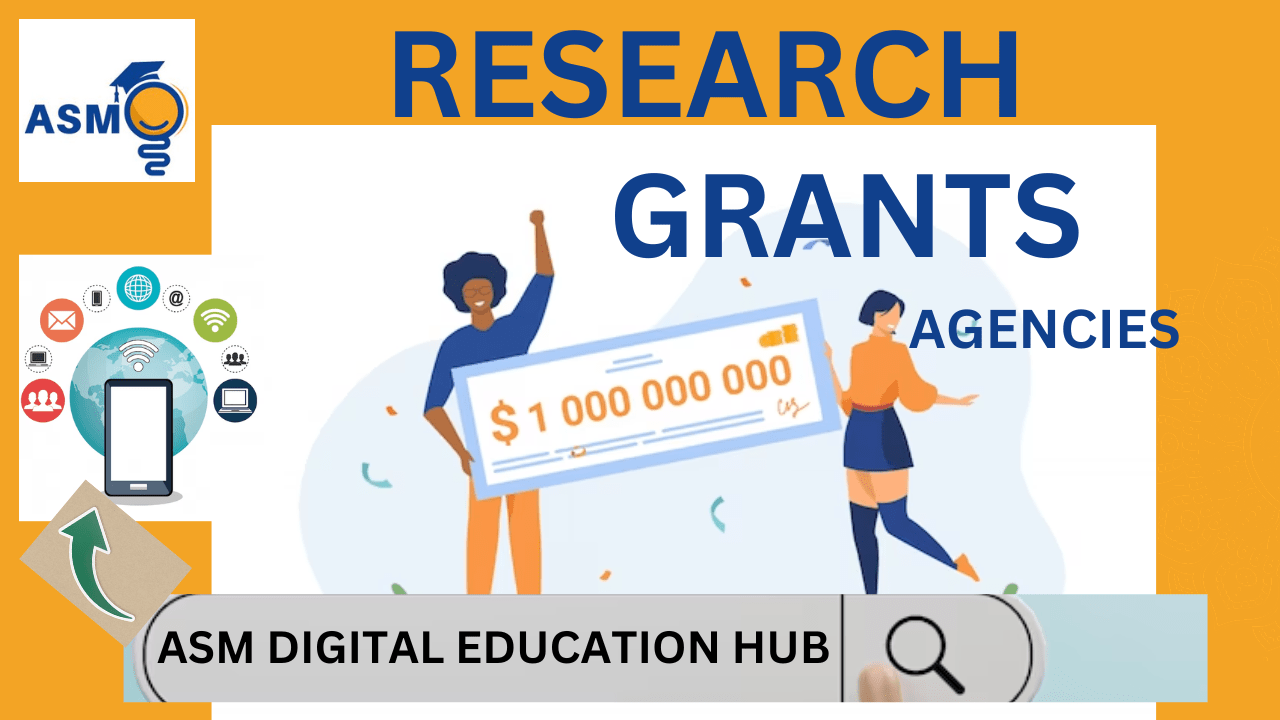Securing research grants is a structured and competitive process that involves multiple stages. Here’s a detailed guide to navigate the process effectively:
1. Identifying Funding Agencies for RESEARCH GRANTS
- Research and Match: Find agencies that align with your research area. Examples include:
- National Science Foundation (NSF)
- Department of Science and Technology (DST)
- European Research Council (ERC)
- Private foundations (e.g., Gates Foundation)
- Eligibility: Review eligibility criteria, such as researcher status, institution type, and project focus.
2. Understanding Grant Announcements RESEARCH GRANTS
- Request for Proposals (RFPs): Study the call for proposals or funding announcements.
- Key Details: Note deadlines, submission requirements, budget limits, and evaluation criteria.
3. Proposal Preparation of RESEARCH GRANTS
Develop a Research Plan: Clearly define the research objectives, methodology, and expected outcomes.
Draft Budget: Prepare a detailed budget for resources, personnel, and equipment.
Institutional Approval: Get your institution’s endorsement if required.
Components of a Proposal:
Literature review
Methodology and timeline
Budget justification
Impact or significance of research

4. Submission of the Proposal of RESEARCH GRANTS
- Online Portals: Submit through agency portals like Grants.gov, Research Council websites, or institutional systems.
- Format Compliance: Ensure compliance with formatting guidelines (font size, margins, etc.).
- Supporting Documents: Attach required documents, such as CVs, letters of support, and certifications.
5. Peer Review and Evaluation RESEARCH GRANTS
- Assessment Process: Proposals are typically reviewed by subject-matter experts.
- Criteria: Common evaluation aspects include innovation, feasibility, significance, and alignment with agency goals.
- Feedback: Some agencies provide feedback on unsuccessful applications for improvement.
6. Grant Award Decision
- Notification: Successful applicants receive an award letter or contract.
- Terms and Conditions: Review and accept the terms for fund utilization and reporting.
7. Implementation and Monitoring
- Use of Funds: Adhere to the approved budget and guidelines.
- Progress Reports: Submit periodic progress and financial reports to the funding agency.
- Compliance: Ensure ethical standards and regulations are followed during research.
8. Completion and Final Reporting
- Final Report: Submit a comprehensive report detailing findings, impacts, and financial statements.
- Acknowledgments: Credit the funding agency in publications or presentations.
Tips for Success
- Start early to meet deadlines.
- Network with peers and mentors to refine your proposal.
- Attend workshops on grant writing to improve your chances of success.
By following this systematic approach, researchers can maximize their chances of securing funding for innovative projects.
Comprehensive list of major research grants and funding agencies in the USA along with their websites:
Government Agencies:
- National Institutes of Health (NIH): https://www.nih.gov/
- National Science Foundation (NSF): https://www.nsf.gov/
- Department of Energy (DOE): https://www.energy.gov/
- Department of Defense (DOD): https://www.defense.gov/
- Department of Agriculture (USDA): https://www.usda.gov/
- Department of Health and Human Services (HHS): https://www.hhs.gov/
- Department of Education (ED): https://www.ed.gov/
- Department of Transportation (DOT): https://www.transportation.gov/
- Environmental Protection Agency (EPA): https://www.epa.gov/
- National Aeronautics and Space Administration (NASA): https://www.nasa.gov/
Private Foundations:
- Bill & Melinda Gates Foundation: https://www.gatesfoundation.org/
- Howard Hughes Medical Institute: https://www.hhmi.org/
- Robert Wood Johnson Foundation: https://www.rwjf.org/
- John D. and Catherine T. MacArthur Foundation: https://www.influencewatch.org/non-profit/john-d-and-catherine-t-macarthur-foundation/
- W.K. Kellogg Foundation: https://www.wkkf.org/
- Gordon and Betty Moore Foundation: https://www.moore.org/
- Alfred P. Sloan Foundation: https://sloan.org/
- Paul G. Allen Family Foundation: https://pgafamilyfoundation.org/
- Pew Charitable Trusts: https://www.pewtrusts.org/en/
- Charles and Lynn Schusterman Family Foundation: https://www.schusterman.org/
Corporate Sponsorships:
- Microsoft: https://www.microsoft.com/
- Intel: https://www.intel.com/content/www/us/en/homepage.html
- IBM: https://www.ibm.com/
- Amazon: https://www.amazon.com/b?ie=UTF8&node=14730500011
- Apple: https://www.apple.com/
- Cisco: https://www.cisco.com/
- Boeing: https://www.boeing.com/
- General Motors: https://www.gm.com/
- Ford Motor Company: https://www.ford.com/
The process of securing research grants is an essential and structured pathway for advancing innovation and knowledge creation. By thoroughly understanding funding opportunities, crafting a well-researched proposal, and adhering to the guidelines set by funding agencies, researchers can significantly improve their chances of success. Collaboration, meticulous planning, and adherence to ethical standards are key to not only securing grants but also ensuring impactful research outcomes. Emphasizing alignment with the goals of funding agencies and demonstrating the societal or scientific relevance of the proposed work can make a compelling case for support. Ultimately, research grants empower academics and institutions to contribute to meaningful advancements in their fields, fostering growth and discovery in a competitive and collaborative environment.


